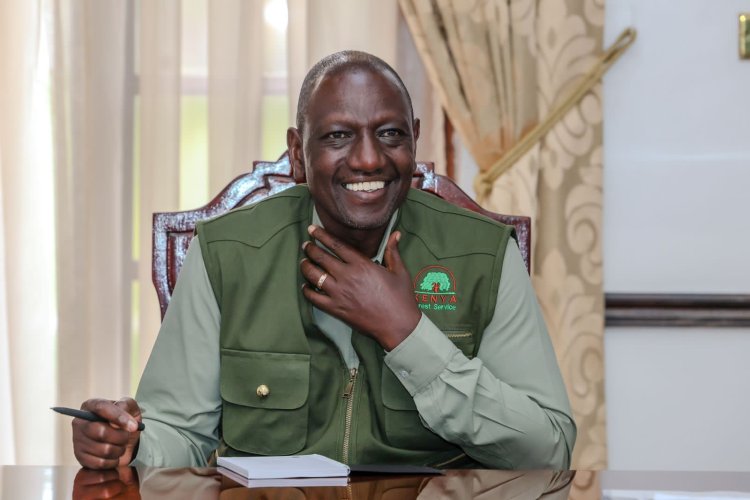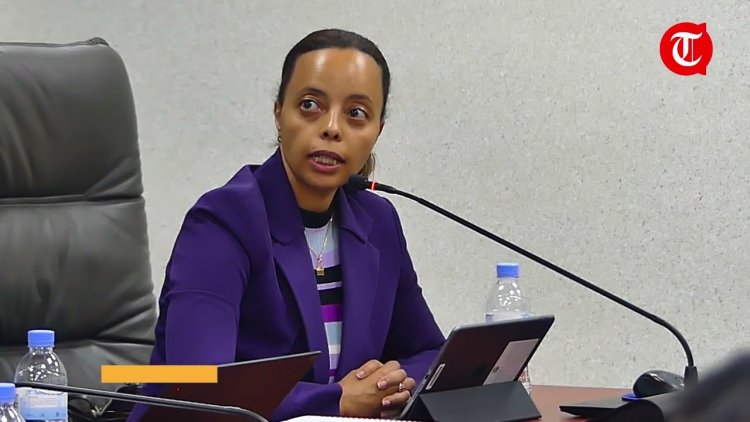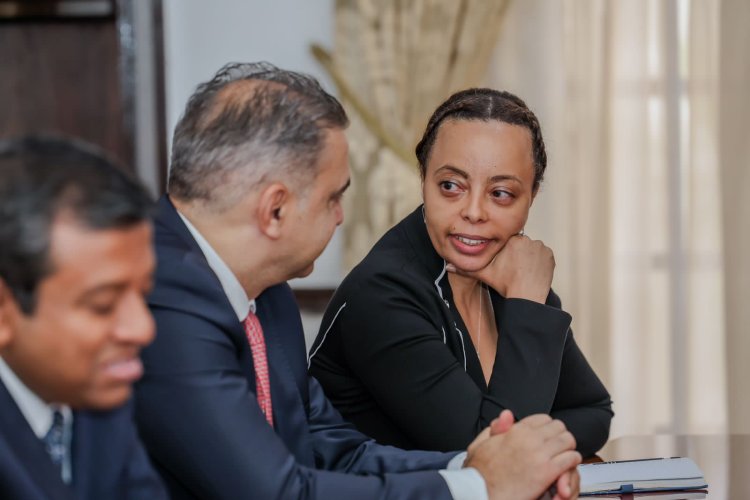IMF Agrees To Support Ruto With Ksh142.8 Billion Loan
IMF indicated that the loan is subject to its management approval and consideration by the Executive Board, which is expected to be completed in January 2024.

The International Monetary Fund (IMF) has reached a staff-level agreement with the Kenyan government which will see the global financial institution boost Kenya with an additional Ksh142.8 billion (USD 938 million) loan.
The agreement was reached after IMF's staff team led by Haimanot Teferra, visited Nairobi from October 30, 2023 to November 15, 2023, and held discussions with the Kenyan authorities for the 2023 Article IV Consultation, the sixth review of Kenya’s economic program supported by the IMF’s Extended Fund Facility (EFF) and Extended Credit Facility (ECF), and the first Review under the Resilience Sustainability Facility (RSF).
The EFF/ECF arrangements were approved by the IMF Executive Board on April 2, 2021, and extended by 10 months on July 17, 2023, to support Kenya in maintaining robust and inclusive growth while preserving macroeconomic stability and debt sustainability.
IMF indicated that the loan is subject to its management approval and consideration by the Executive Board, which is expected to be completed in January 2024.

A photo of IMF Mission Chief for Kenya, Haimanot Teferra. /TAARIFA RWANDA
The mission also considered Kenya’s request for augmentation under the EFF/ECF arrangements. If approved by the Executive Board of IMF, including augmentations, the EFF/ECF arrangements would provide access to a total amount of about Ksh590.5 billion (US$3.88 billion) at current exchange rate.
For Kenya, the deal would see the country gain immediate access to Ksh103.8 billion (USD 682.3 million).
“I am pleased to announce that the IMF team and the Kenyan authorities have reached a staff-level agreement on (i) the sixth review of Kenya’s economic program under the Extended Fund Facility (EFF) and Extended Credit Facility (ECF) arrangements; (ii) an augmentation of access under the EFF/ECF totalling 130.3 per cent of quota SDR 707.3 million, about US$938 million); and (iii) the first review of the RSF.
“The agreement is subject to IMF management approval and consideration by the Executive Board, which is expected in January 2024. Upon completion of the sixth review by the IMF Executive Board, Kenya would have immediate access to about US$682.3 million, including from the augmentation of access under the EFF/ECF arrangements (SDR469.25 million) and first review of RSF (SDR45.23 million). This would bring total IMF financial support disbursed under the EFF/ECF and RSF arrangements to SDR2.02 billion (about US$2.68 billion)," stated Haimanot Teferra.
Teferra noted that the tightening global financing conditions for frontier economies and global geopolitical tensions are compounding the challenges from the legacy of the pandemic and multi-season drought, further straining Kenya’s balance of payments and fiscal financing requirements.
Furthermore, the authorities’ strong reform program aims to enhance macroeconomic stability and restore confidence to ensure access to the international bond markets.
“The economy has displayed resilience, with real GDP expanding by 5.4 per cent in the first half of 2023, primarily due to a robust recovery in the agriculture sector following the return of rains. In the fiscal year 2022/23, the primary deficit came in as expected at 0.6 per cent of GDP, reflecting tight expenditure management in light of tax revenue shortfalls. Financing conditions continue to be challenging. With a tightening of monetary policy in June and tighter liquidity conditions, yields on government bonds have experienced a notable upward trend.
"The external current account deficit has narrowed, driven by a recovery in the tourism sector to pre-COVID-19 levels, resilience in remittances reductions in imports and a real exchange rate depreciation. Headline inflation has fallen within the target range of 2.5–7.5 per cent since July," she added.
Teferra however pointed out the looming uncertainty over Kenya’s effective access to international bond markets, which is exerting substantial pressure on liquidity, primarily due to the sizeable Eurobond maturing in 2024.
Against this backdrop, Kenyan authorities are actively mobilizing additional financing from their development partners, the IMF, and commercial sources while concurrently intensifying their efforts to enhance macroeconomic policies and implement structural reforms.
“Steadfast implementation of a package of mutually reinforcing policies remains key to sustain macroeconomic stability, anchor market confidence, continue to deliver on the program’s objectives, and bolster Kenya’s medium-term prospects.
"A tighter fiscal stance is envisaged under the program to help reduce debt vulnerabilities and achieve a PV debt/GDP of 55 per cent, the authorities’ debt anchor, by 2029. This will entail the timely implementation of reforms to broaden the domestic tax base and improve tax compliance," she went on.
IMF termed this as critical for achieving the authorities’ revenue objectives of reversing the trajectory of the tax revenue-to-GDP ratio while promoting equity and fairness in the tax regime.
It recommended continuous rationalization, with a focus on enhanced efficiency of public investments, better targeting of subsidies and transfers, addressing weakness in state corporations, and digital delivery of public services.
IMF also welcomed the Central Bank of Kenya’s (CBK’s) steps to modernize the monetary policy framework and improve the functioning of the forex market.
"The recent introduction of an interest rate corridor centred around the policy rate, aimed at guiding the interbank rate, is anticipated to enhance the transmission of monetary policy. Additionally, initiatives like the DhowCSD and other policy adjustments are expected to stimulate interbank repos, potentially minimizing market fragmentation," the IMF Chief of Mission stated.
“On the upside, should investor confidence recover fully, a virtuous cycle of inflows could stabilize the exchange rate and bring down inflation faster than expected. An enhanced rebound in agriculture could bolster growth, and help reduce inflation further, while earlier-than-expected market access would ease financing constraints. Further progress with reforms that improve the business environment, and that support a market and rules-based economy would reinforce this upside risk."


 admin
admin 




